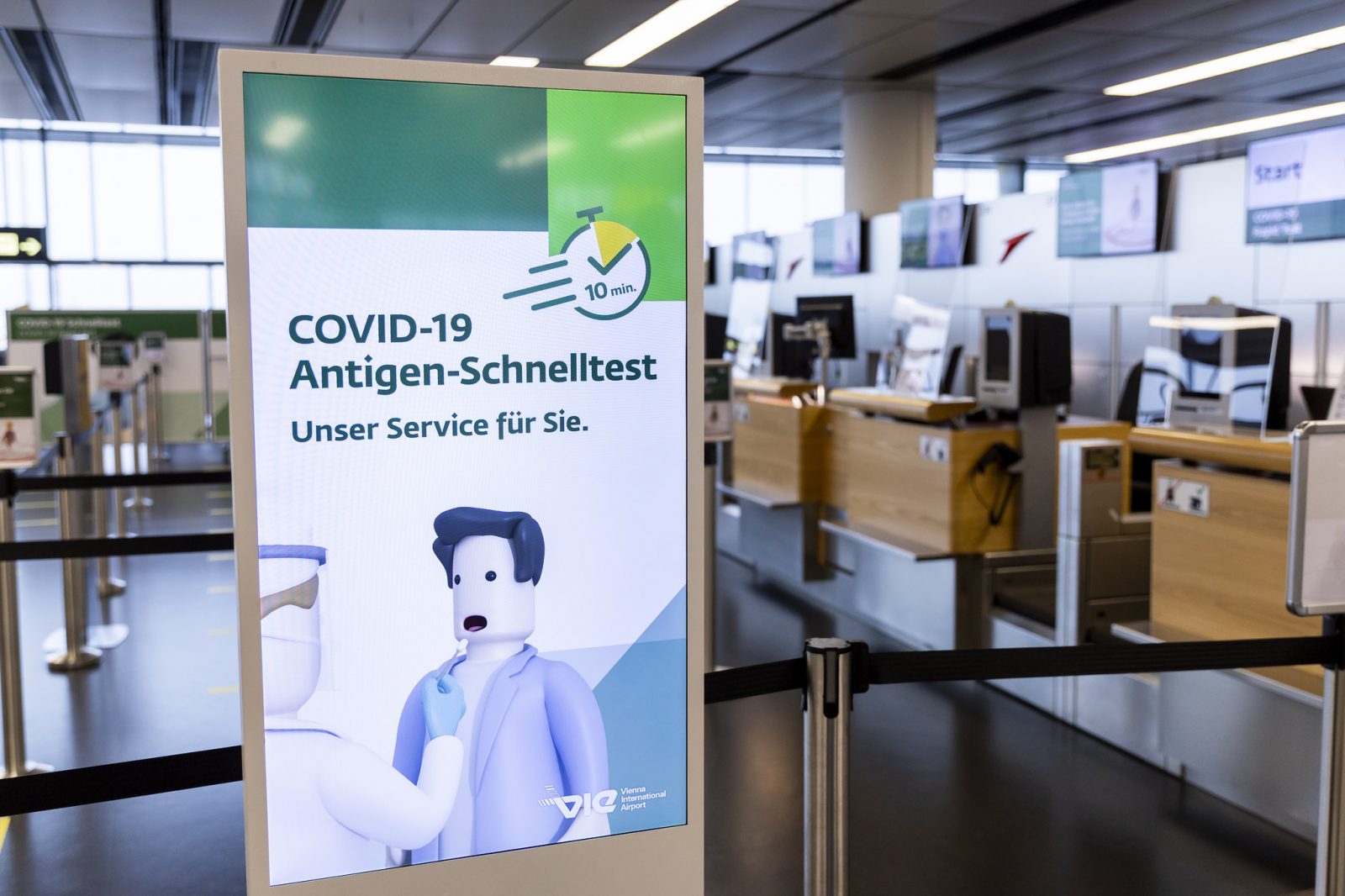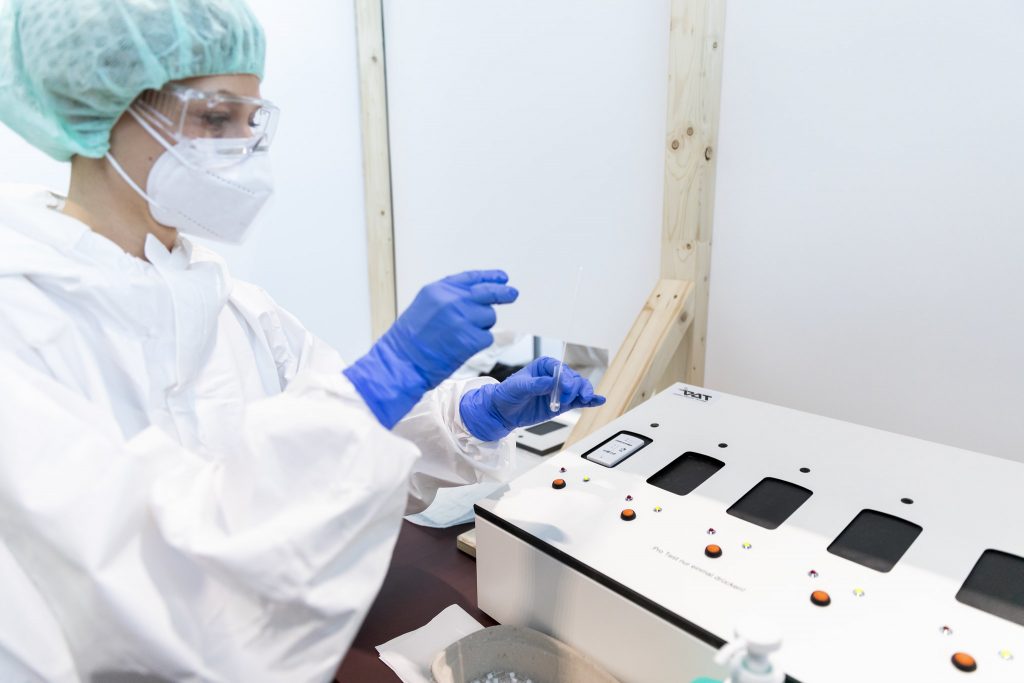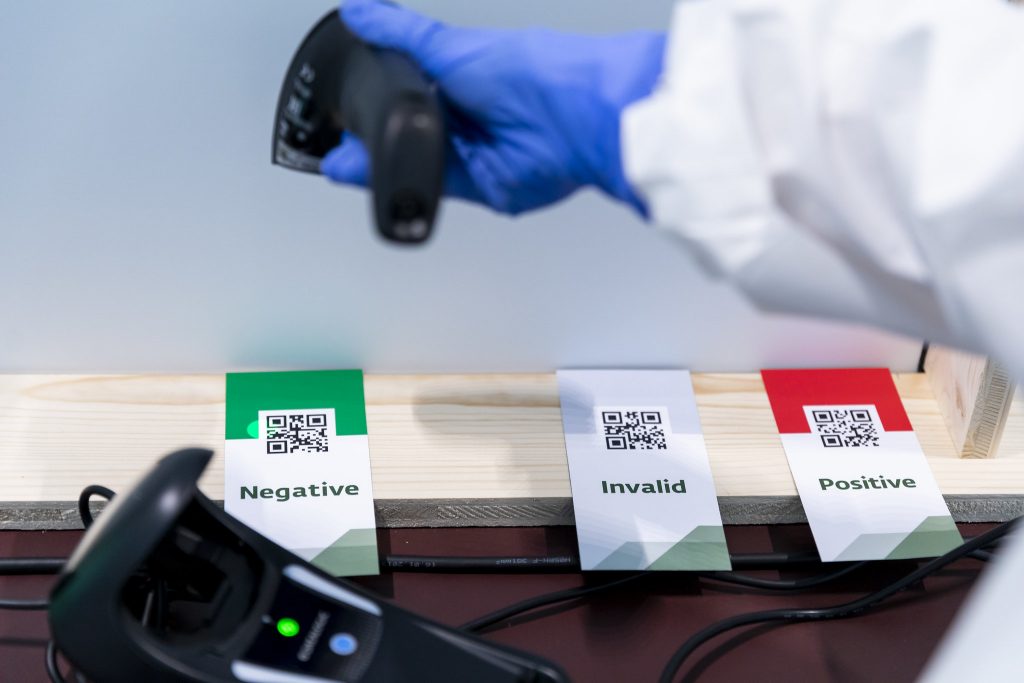
Austrian Airlines is pushing ahead with a trial for rapid pre-flight Coronavirus tests despite the fact they aren’t recognised as a replacement for ‘gold standard’ PCR tests or ever-changing travel regulations. The trial comes as Airlines 4 America, a trade body that represents some of the biggest airlines in the United States including American, Delta and United Airlines, called for mass pre-travel testing as a way to “obviate the need for quarantines and travel bans”.
The trial by Austrian Airlines and Vienna Airport is part of a wider effort by the Lufthansa Group to find ways to “dismantle the barriers created by the coronavirus” which have brought the aviation industry to its knees.

Initially, pre-flight testing will only be offered to passengers flying Austrian’s route between Vienna and Berlin on flight OS229. The rapid tests can produce a result in as little as 15-minutes with passengers completing the non-invasive test shortly after check-in. Only once the result is returned as negative will the passenger’s boarding pass be activated allowing them access past standard security checkpoints.
Austrian’s chief operating officer Jens Ritter explained the overall objective of the trial is to convince governments to loosen travel restrictions. “However, first we aim to show how a targeted testing program can work,” Ritter said of the trial which could be extended to more flights in the coming weeks.
Vienna was one of the first airports in the world to offer in-airport COVID-19 testing on arrival. At a cost of over €100, the tests allowed passengers arriving from ‘high risk’ countries to skip quarantine.
“The entire tourism and travel industry urgently needs future-proof solutions to get out of the crisis. Rapid antigen tests provide a quick result and can be well integrated into the operational process of air travel,” Julian Jäger, a member of Vienna Airport’s management committee said of the trial.
Rapid antigen tests produce results much quicker and are a lot cheaper than the standard PCR tests favoured by governments but which require off-site lab analysis and specially trained technicians.

Recent guidance from the Centres for Disease Control and Prevention (CDC) claims rapid antigen tests have a similar specificity (the number of false positives) to PCR tests but the sensitivity (false negatives) could be lower, ranging from 84 per cent to 97.6 per cent.
The airline industry, however, is on an offensive to convince governments that a slightly lower sensitivity rate offered by approved rapid tests is a risk worth taking. An argument that so far failed to gain much traction.
But in an open letter to the Department of Transport, Homeland Security and Department for Health and Human Services, a group of 20 organizations including Airlines 4 America claim rapid pre-flight testing, although not 100 per cent accurate, would be far more effective than trying to police quarantine rules.
“There is widespread agreement in the aviation and travel industries that appropriate COVID-19 pre-departure testing protocols can serve as an alternative to quarantine while increasing confidence in the health and safety of the air transportation system,” reads the letter.
The group, which included major U.S. aviation unions, the U.S. Chamber of Commerce and the International Air Transport Association (IATA) accused governments of “aiding in the demise of our industry” through continued travel restrictions.
A system of pre-flight testing, however, will require significant international cooperation and that’s been in short supply throughout the Coronavirus pandemic. Filling the void created by a lack of official protocols, airlines and the wider aviation industry is starting to build its own system designed to safely restart international travel.
Related
Mateusz Maszczynski honed his skills as an international flight attendant at the most prominent airline in the Middle East and has been flying ever since... most recently for a well known European airline. Matt is passionate about the aviation industry and has become an expert in passenger experience and human-centric stories. Always keeping an ear close to the ground, Matt's industry insights, analysis and news coverage is frequently relied upon by some of the biggest names in journalism.







